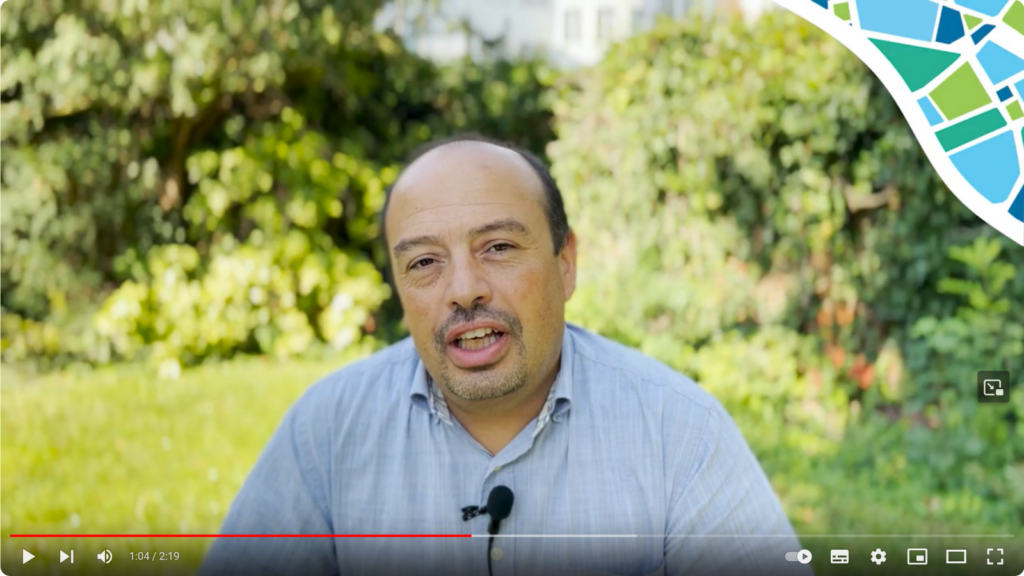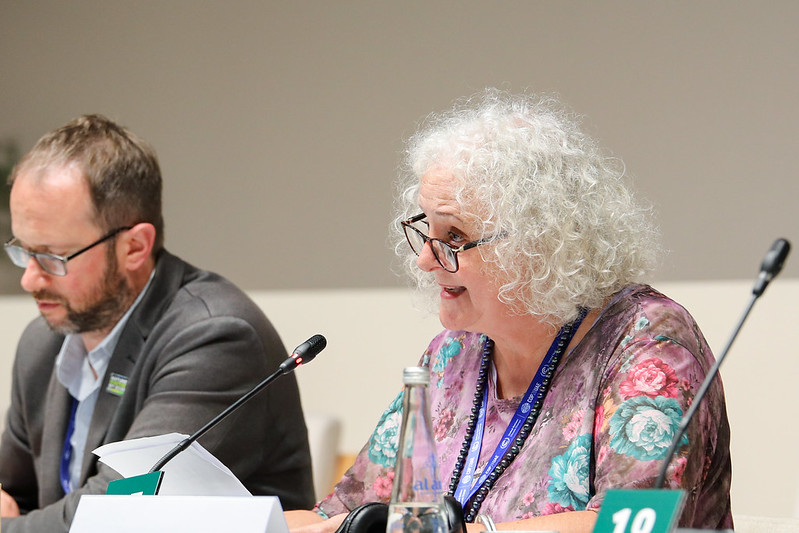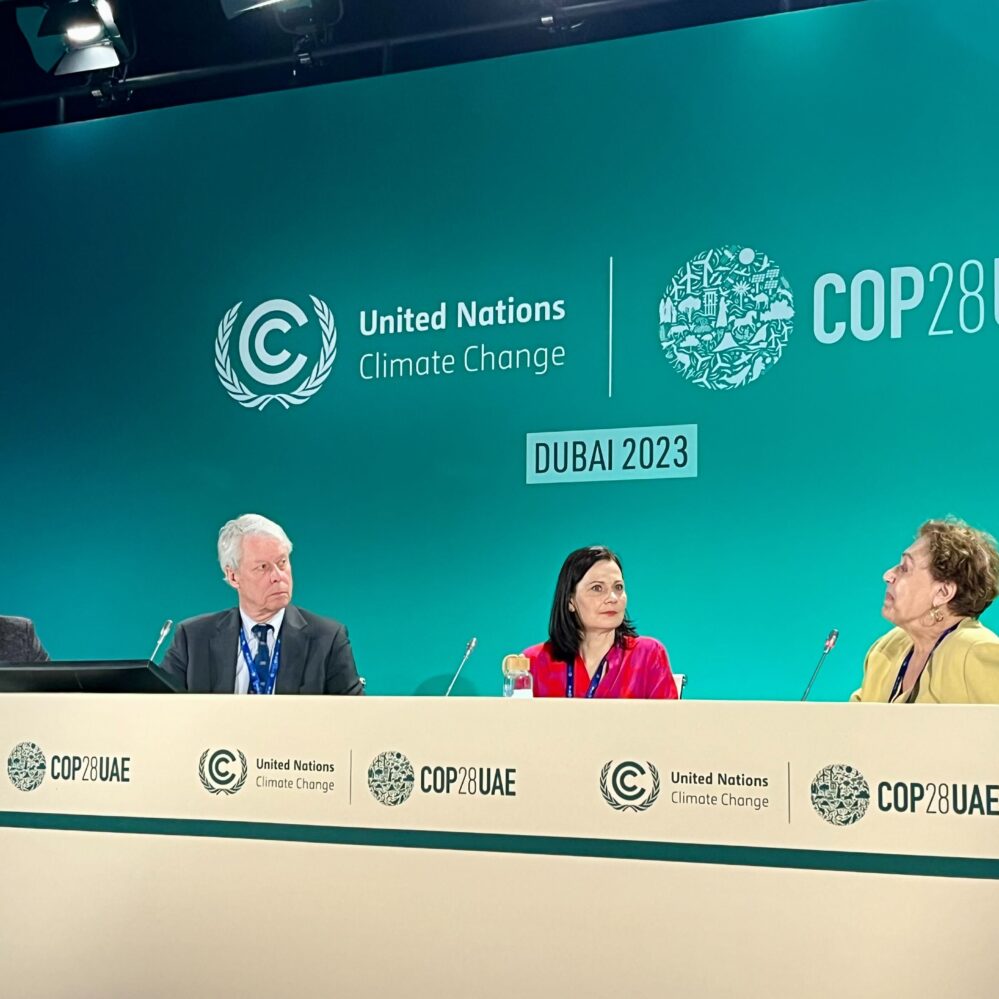Cities are on the front lines of the climate crisis. Faced with escalating extreme weather events, urban centers worldwide grapple with the dual task of preparing for inevitable climate impacts and actively seeking sustainable solutions. However, two significant obstacles remain: collaboration with national governments and access to financial resources to deliver their commitments. Despite their crucial role, cities, towns and states often find themselves without the necessary financial resources to implement effective climate action.
COP28, short for the 28th Conference of the Parties, began on 30 November 2023 in Dubai, UAE. COP28 is more than just a meeting; it’s a pivotal event in the ongoing global effort to tackle the climate crisis. This conference brings together leaders and representatives from nearly every country, along with experts, activists, and observers, to discuss and negotiate actions against climate change.
This year, more than 170 local and regional leaders from ICLEI’s network are in attendance. 180+ cities and regions are represented, and 60+ ICLEI experts and staff are on the ground supporting our leaders, cities and regions.
A key focus of COP28 is on assessing progress toward the goals of the 2015 Paris Agreement, particularly in light of the Global Stocktake, a comprehensive assessment process under the Paris Agreement, conducted every five years to evaluate global progress toward achieving climate change mitigation and adaptation goals.
The summit also serves as a crucial platform for nations to update their climate action plans, known as Nationally Determined Contributions (NDCs), and to push for more ambitious targets that include their local and regional governments, in planning, financing, implementation, and monitoring.
With its emphasis on collaborative effort and urgent action, COP28 represents a critical opportunity for the international community to accelerate climate efforts and chart a course toward a more sustainable and resilient future by including local and regional governments in their goal setting and implementation processes.
For example, the revised NDC from the United States is a good model of an NDC that has been advanced through the commitments of states and regions. In turn, many US cities started to have access to funding from federal sources, which is a demonstration of how multilevel action can help all levels of government.
**Interested in following cities and regions at COP28? Sign up for our daily updates**
How do cities and regions get a voice at the COP?
For over twenty years, the Local Governments and Municipal Authorities (LGMA) constituency has been a driving force in bringing the voices of local governments to the forefront of global climate discussions. In the realm of international climate negotiations under the UNFCCC, ‘constituencies’ represent key groups from various sectors of society, ensuring a multifaceted perspective in the discourse. These constituencies include a diverse array of stakeholders, ranging from non-governmental organizations to business entities and indigenous populations.
The LGMA constituency plays a critical role in this framework. It advocates for the interests and perspectives of subnational entities like cities, towns, and regional governments. As a voice for local governments, the LGMA highlights the unique challenges and innovative solutions these bodies offer in addressing climate change. The LGMA ensures that the strategies and needs of local authorities are integrated into global climate policies, a crucial aspect considering the increasing importance of urban areas in both contributing to and solving environmental challenges. ICLEI serves as the official focal point of the LMGA to the UNFCCC.
The LGMA Constituency’s vision for COP28
This year, well ahead of the COP, the LGMA agreed to a shared position emphasizing the indispensable role of subnational governments in combating climate change. Acknowledging the stark warning from the IPCC’s Sixth Assessment Report, the position statement stressed the urgency of action to limit global warming to 1.5°C and enhance adaptive capabilities. Climate disasters like floods, heatwaves, and droughts are already taking a toll, disproportionately affecting vulnerable communities, including women, children, and indigenous peoples. Despite strides in national climate strategies, the statement pointed out the lag in transitioning from planning to implementation, urging for accelerated, equitable multilevel governance. They call for the recognition of subnational governments as pivotal players in climate justice, disaster recovery, and fostering sustainable economies.
The LGMA’s position paper is a call for enhanced collaboration and support for local governments, emphasizing our role in driving impactful climate action and ensuring a just and resilient transition to net-zero.
Advocacy wins for multilevel action throughout 2023
2023 saw a growing list of multilateral outcomes that explicitly recognize local and regional government leadership and the need for parties to involve all levels of government in climate action planning and financing. These include earlier outcomes from the G7, G20, African Climate Summit, Amazon Climate Summit, and UNCAS 2023 Chairs’ Summary, which all make reference to multilevel cooperation.
For the first time, the EU Council also made a clear reference to the multilevel governance and the role of cities and regions in its COP negotiating mandate.
In the EU, the local level is responsible for implementing more than 70% of EU policy regulations and measures; as such, their involvement is key to making sure these measures are accepted by the public and rolled-out swiftly. Their official council conclusions explain, “the leadership of local and regional governments in accelerating and broadening climate action while effectively engaging citizens in the transformative process to sustainable lifestyles and patterns of consumption and production”. The Council furthermore emphasizes, “the need for increased involvement of local and regional governments in the process of implementing NDCs, national adaptation plans (NAPs) and LTS”.
The unprecedented recognition of local and regional governments’ leadership in accelerating climate action at the European and international levels is a crucial step towards effectively addressing the climate crisis.
ICLEI Regional Director for Europe Wolfgang Teubner explains, “ICLEI Europe and its Members from local and regional governments welcome the Environment Council’s conclusion on COP28 recognizing the crucial role of local and regional governments in implementing effective and inclusive climate action with citizens. This is a landmark step in underlining the importance of close cooperation between different levels of government to achieve national and international climate goals. By increasing cooperation on shaping and implementing relevant policies across all levels of government, the EU can pave the way for an effective and ambitious response to the climate emergency at COP28 and beyond.”
Read more from ICLEI’s European Secretariat on COP28.
Local and regional leaders are at the table
This year, COP28 President-designate Dr. Sultan Ahmed Al Jaber and UN Special Envoy on Climate Ambition and Solutions Michael R. Bloomberg are hosting a historic summit at COP28 – the Local Climate Action Summit, a formal convening to bring subnational leaders into the COP program and process.
Convened by the COP28 Presidency and Bloomberg Philanthropies from December 1-2 in Dubai, the COP28 Local Climate Action Summit brings together subnational climate leaders – mayors, governors, businesses, non-government organizations, and more – who are increasingly vital to helping national governments reach emissions reduction targets and net-zero ambitions. This Summit unites subnational and national leaders to establish new ways of collaborating on climate action across all levels of government.
This is the first time a Summit for local leaders will be hosted by the COP Presidency, and it is a significant leap forward that will amplify the ongoing efforts of local leaders in empowering communities to drive global climate action. The COP Presidency will also welcome the inaugural global delegation of mayors and governors at the World Climate Action Summit, which will firmly establish subnational governments’ voices in global climate talks.
Why we are taking stock
Under the Paris Agreement, there’s a vital process known as the Global Stocktake. The Global Stocktake looks at the collective efforts of countries and evaluates whether we’re on track to meet the Paris Agreement goals, especially keeping global warming below 2°C, ideally 1.5°C.
It’s a moment of truth, revealing both achievements and gaps. Why is this important for NDCs? These are the plans each country makes to reduce its carbon emissions and adapt to climate impacts. The Stocktake in 2023 will provide crucial insights and evidence, guiding countries to revise and enhance their NDCs by 2025 (COP30). It’s not just about reviewing progress; it’s a trigger for ramping up ambition and action.
Cities and regions around the world have started to offer up their own “local stocktakes”, as contributions to this global assessment. Local stocktakes provide a platform for cities and regions to assess their climate actions, share best practices, and identify gaps. These local insights are instrumental in shaping more effective and inclusive global climate policies. The exchange between local and global perspectives enriches the overall climate discourse, ensuring that no community is left behind.
ICLEI Director of Global Advocacy Yunus Arikan on local stocktakes
More than 25 cities have already registered a local stocktake. Additionally, recognizing the unique challenges faced by cities in the Global South, ICLEI has supported their active participation in climate discourse. Through targeted funding and support, these cities can contribute their valuable perspectives and experiences, enriching the global understanding of climate resilience and adaptation.
This is a story of empowerment and hope
As COP28 continues, the statistics are more than numbers; they represent a narrative of resilience and proactive change. For example, in 2016, Darebin, Australia was the first city council to declare a climate emergency; as of 2022, more than 2000 councils have adopted this declaration, including more than 500 ICLEI Members. Cities, towns, states and regions are changing how the world views this crisis.
Cities, though diverse in their challenges and contexts, share a common goal: to create a sustainable future for all. In the words of Yunus Arikan, Director of Global Advocacy at ICLEI, “Our towns, cities, states and regions are not just the battlegrounds of the climate crisis; they are the breeding grounds of hope and action.” We hope to see that reflected at COP28.
This article was written with contributions from Ariel Dekovic, ICLEI World Secretariat and Alexandra Pfohl, ICLEI European Secretariat.





